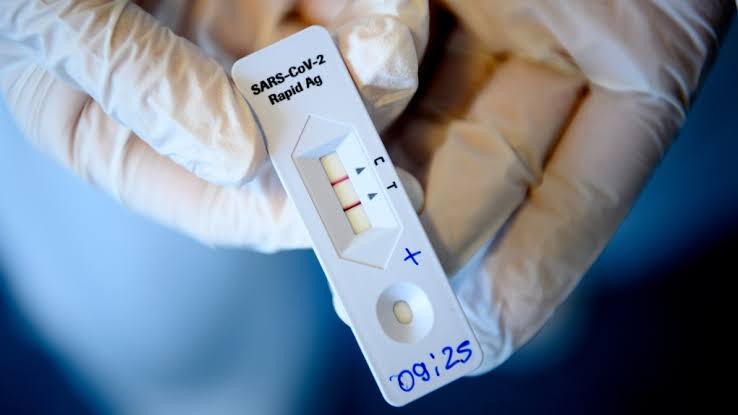What Makes Rapid Antigen Tests a Convenient Choice for COVID-19 Testing? Proven Advantages and Practical Benefits

If you’re looking for a quick and easy way to determine your COVID-19 status, rapid antigen tests are a convenient option. These tests deliver results in just 15-30 minutes, making them ideal for those who need immediate answers. Unlike PCR tests, which can take several days, rapid antigen tests are designed for speed and ease of use.
One of the main advantages of rapid antigen tests is their simplicity. You can buy Lateral Flow tests here and easily administer them at home. These tests require just a swab from your lower nostril and can be performed without any special equipment or training. This means you can quickly test yourself or family members without needing to visit a healthcare facility.
Additionally, rapid antigen tests like the FlowFlex Covid Self-Tests 5 Pack are accessible and affordable. With a single kit containing multiple tests, you can regularly check your COVID-19 status. This frequent testing can help in early detection and isolation of positive cases, which is important in controlling the spread of the virus.
Fundamentals of Rapid Antigen Tests
Rapid antigen tests for COVID-19 involve a simple process and provide quick results, making them particularly useful for self-testing and timely decision-making. These tests detect specific proteins from the virus and deliver results usually within 15-30 minutes.
Definition and Technology
Rapid antigen tests are designed to detect proteins from the virus that causes COVID-19. These proteins, known as antigens, are identified using specialised antibodies. The test kits usually include materials such as swabs, test strips, and buffers. When a sample is taken from a person’s nasal cavity and combined with a buffer solution, it is then applied to a test strip that contains antibodies specific to the virus.
If the virus’s antigens are present, a coloured line will appear on the test strip, indicating a positive result. This swift detection method is particularly useful for home testing and point-of-care settings, reducing the need for laboratory resources such as FlowFlex, a common at-home testing kit.
Mechanism of Action
Rapid antigen tests work by identifying the presence of SARS-CoV-2 antigens in a sample, typically taken from the nasal cavity. The test utilises a lateral flow immunoassay, where the sample fluid flows along a pad that has antibodies specific to the virus.
When the antigens bind with these antibodies, the interaction causes a visible coloured line to appear on the test strip. This indicates a positive result. The test is capable of delivering results within 15 to 30 minutes, allowing for quick decisions on isolation and treatment. Despite its speed, the accuracy of these tests can vary, especially in individuals with low viral loads.
Types of Antigen Tests
There are several types of rapid antigen tests available, each suited to different settings. Some are designed for professional use, requiring trained personnel to administer and interpret the results. Others are made for self-testing, allowing individuals to perform the test at home.
Self-testing kits often include all necessary components, like swabs and buffer solutions, offering ease of use and quick results. For example, lateral flow tests are another term commonly used for these kits. These can be particularly useful for regular monitoring and screening, especially if you frequently interact with others or travel. Each test type offers unique features tailored to specific needs, such as accuracy, ease of use, and cost.
Advantages of Rapid Antigen Testing for COVID-19
Rapid antigen tests for COVID-19 offer distinct advantages. They are both efficient and easy to use. They also provide a quick way to identify infections and enable effective isolation.
Speed and Efficiency
Rapid antigen tests stand out because of their speed. You can get results within 15-30 minutes. This quick turnaround is important, especially in high-traffic areas like airports and schools.
Quick results help you make fast decisions. For example, if you test positive, you can quickly isolate yourself. This helps prevent the virus from spreading further. Moreover, the test process is simple. You don’t need to send samples to a lab. This efficiency makes rapid antigen tests a game-changer in fighting the virus.
Accessibility and Portability
These tests are easy to access and portable. You can administer them almost anywhere, like at home or in remote locations. You don’t always need a healthcare provider to perform the test.
This accessibility is important in places with limited medical facilities. It ensures that people in rural or underserved areas can still get tested. Additionally, their portability makes them ideal for travel. You can carry them around and use them whenever needed. This feature helps expand testing coverage to a wider population.
Affordability
Rapid antigen tests are generally more affordable compared to PCR tests. Lower cost makes it easier to conduct widespread testing. This is especially important for large-scale events or workplaces.
Cost-effectiveness is key in managing a prolonged pandemic. Businesses, schools, and public events can regularly test employees, students, and participants without spending too much. Affordable testing is beneficial for individuals, too. People are more likely to get tested frequently if it doesn’t cost a lot.
Ease of Use
The ease of use is another strong point of rapid antigen tests. You can perform them yourself without much training. Many tests come with simple instructions. You only need a basic nasal swab, which isn’t complicated to handle.
The simple procedure is appealing to those who find medical tests stressful. People feel more comfortable taking the test in a familiar setting like their home. In addition, the straightforward process reduces errors that can occur during sample collection and handling. This user-friendly approach encourages more people to get tested regularly.
Conclusion
Rapid antigen tests offer you a quick and easy way to detect COVID-19. They deliver results within minutes, making them highly convenient for immediate screening. Their simple design means you can use them in various settings, such as clinics, workplaces, or even at home.
Despite their lower accuracy compared to PCR tests, they are still effective in identifying most active infections. The wide availability and ease of use make them an excellent tool in managing the spread of COVID-19.
Quick identification and isolation of positive cases can significantly reduce the virus’s transmission. You’ll find that rapid antigen tests are a practical choice for large-scale testing and community health efforts.



